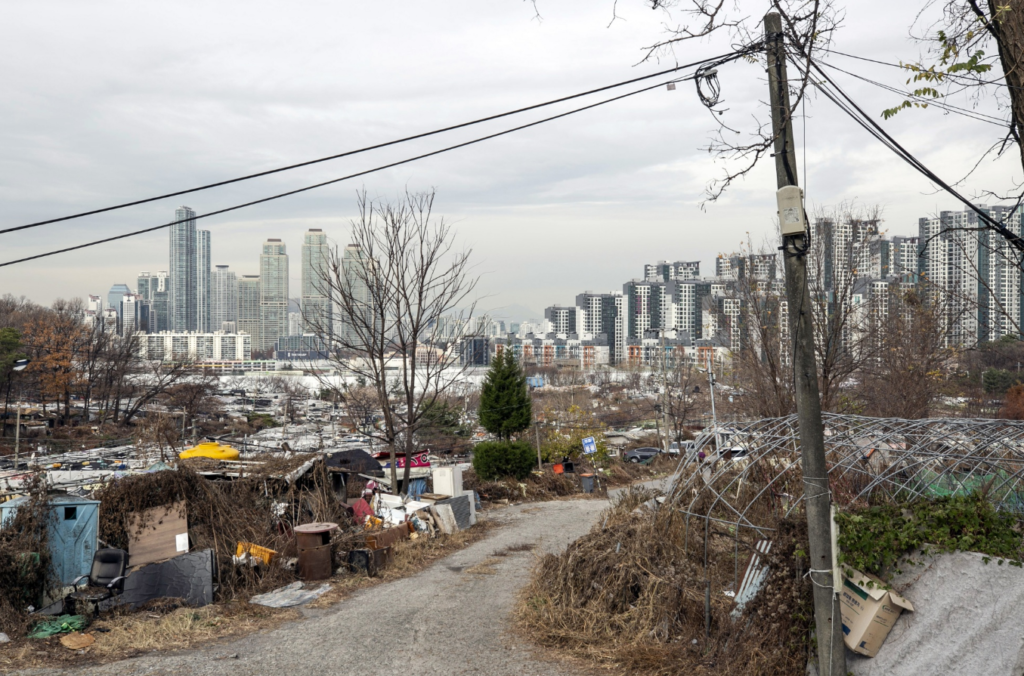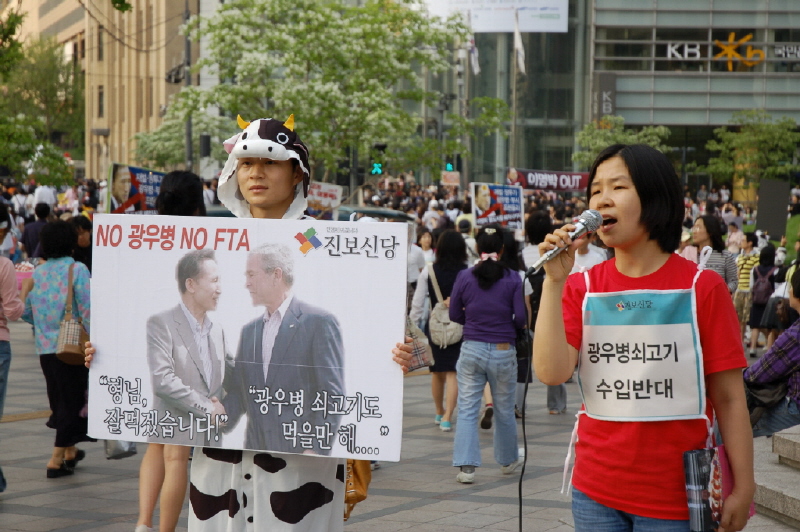How Fictional Is Squid Game?

Within just over a month of its release, Hwang Dong-hyuk’s Squid Game has become the most-watched TV series on Netflix. This is no small feat for a Korean show, considering it shares the top 10 list with only one non-English series. This linguistic and cultural disparity seems to have caused a variety of interpretations of its premise. While it is evidently a social commentary of sorts, there appears to be confusion amongst non-Korean audiences: some find it a broad critique of capitalism and morality, while others have even argued that it supports free trade.
However, when considering both historical and present conditions in South Korea, it becomes clear that the show is providing a specific criticism of the conditions under South Korean capitalism through both the plot and characters. Economic inequalities have been increasing: in 2010, 40 per cent of South Koreans earned less than KRW 1,000,000 per month (roughly USD 850) despite high living costs. Meanwhile, the wealthy, like chaebol families, are not even fully bound by the law. For example, Samsung heir Lee Jae-yong has repeatedly been released early from jail sentences despite his conviction for various corrupt acts.
Criticism of these inequalities’ impact is omnipresent in the show. While the Squid Game itself is fictitious, the debt that it is designed to address is a real and active problem. Borrowing funds is extremely common due to high property prices and interest rates that can reach extreme heights – in some cases over 17 per cent. As a result, household debt in South Korea averaged at 190 per cent of household income in 2019, and the rate has only continued increasing. Between 2009 and 2019, the average debt ratio increased by almost 40 per cent. The high level of debt has been a massive driver in the country’s suicide rates, the highest of any OECD country. Data collected in 2012 showed that financial problems were the largest cause of suicide amongst South Korean adults; for those in their 40s and 50s, it was attributed to over 50 per cent of suicides.

We find this exemplified in the show by Sang-woo’s suicide attempts. He is helpless in the real world, wanted by police after using his clients’ money to make a series of poor investments. The game’s prize money is his only way out. After his release from the first game, he attempts suicide, only to be saved by a second invitation to the game. This time he reaches the end but faces a likely defeat against his old friend Gi-hun. Despite being offered to leave together, he refuses and commits suicide as this would forgo the reward — he cannot afford to leave the game.
The show also addresses the conditions faced by migrant workers. This demographic faces many difficulties in the country’s living and work conditions. This year, the South Korean labour ministry surveyed the residences of almost 4000 migrant workers in the farming and fisheries sector. Of these, almost 70 per cent live in makeshift structures. Further, these workers are also frequently denied their rightful pay. The same report found that ₩150 billion (126.6 USD) worth of wages had gone unpaid last year. The plight of migrant workers in South Korea is explicitly portrayed by the character Ali, whose boss refuses to pay him. This mistreatment forces him to take the money by force and flee to support his family. His boss’ withholding of pay is what compels him to enter the game, as his family can no longer support itself.
These issues are not isolated and coexist with racial prejudices in the country. South Asian migrants like Ali are especially subject to discrimination. In a 2019 study, Professor Kim Seok-ho of Seoul National University found that South Koreans distance themselves most from that demographic.
These negative perceptions also affect North Koreans, whose complex relationship with the South is explored in Squid Game. The character Kang Sae-byeok represents a common reality for defectors. South Koreans can often be exclusionary towards Northerners, at times referring to them as foreigners despite common Korean roots. Instead, Northerners are called nahm, or ‘others’ in English. Defectors also face a variety of negative stereotypes that contribute to their alienation and poor mental health upon arrival in the South. This has such a strong effect that a majority of young defectors are reluctant to reveal their origin. These attitudes also cause difficulties in material wellbeing such as poverty, longer work hours for less pay, and higher unemployment rates than their Southern-born counterparts. In one instance in 2018, a mother and child who defected died alone in their apartment of starvation. Sae-byeok mirrors this situation as she dies alone and indebted in the South.
Additionally, her portrayal of the North and South is interesting in the South Korean political context. Sae-byeok seems to express skepticism towards finding a better life in the South. When asked if life is in fact better there, she does not reply, and her last words are “I want to go home” — presumably in reference to the North. Real-life defectors with this sentiment can be found. Kim Ryon-hui, for example, travelled to the South under the impression that she could earn money and leave again within months. After seven years, though, she has still been unable to return North against her wishes. This vagueness is likely intentional due to the National Security Law, which makes a positive portrayal of the North illegal. It is important to note that the law is still enforced: most years since 2011 have seen over 100 arrests made under it. This questioning of the South’s improved way of life is likely one of the most daring pieces of commentary made by the show, considering the peninsula’s political polarization.

Squid Game also appears to criticize US involvement in the South. In this case, it is done less explicitly and depicted through the structure of the game itself rather than any particular character. The Frontman, who organizes the games, communicates with the players in Korean but occasionally speaks to off-screen characters in English. These are the only characters with whom English dialogue occurs. They are later revealed to be VIPs, who are wealthy and mostly American individuals who gamble frivolously on the players’ lives.
The attitude of the American VIPs towards the players reflects a common theme in American involvement in the peninsula, which tends to place American interests before Korean ones, whether during the Korean War in the 1950s, IMF restructuring in 1997, or even today. The US still stations almost 30,000 troops and operates its largest overseas base in South Korea, costing the latter country USD 921.5 million in 2019. The Frontman’s principles also appear to reflect those outwardly promoted by the US. He insists that freedom, democracy, and equality are central to the game despite the obvious coercion which players face. For example, the players supposedly enter the game of their own free will, but the game disregards the economic conditions forcing them to risk their lives. This resembles the US’ self-declared purpose in South Korea, which has purported to support the same three values while often supporting the precise opposite, as was evident with military dictators like Syngman Rhee.
It seems that once Squid Game is compared alongside the contemporary context of South Korean politics, a clear criticism emerges. While the poor are often forced to find dangerous ways to survive their everyday lives, the wealthy live comfortably at the expense of the former’s suffering. Much of this wealth is concentrated in foreign, predominantly American hands, which display little concern for the South Korean people’s interests at large.
Featured Image: “Squid Game logo” is licensed under public domain.
Edited by Emma-Jane Ni
